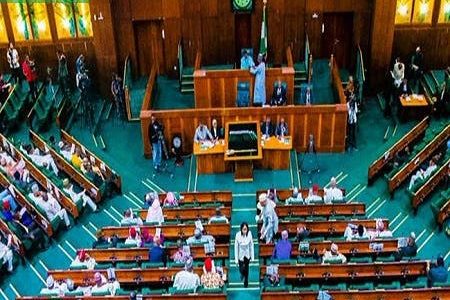
The House of Representatives, on Wednesday, unveiled plans to investigate the activities of the Central Bank of Nigeria (CBN) and commercial banks operating in the country over unclaimed funds and infractions.
To this end, the House set up an Ad-hoc Committee to be chaired by Hon Unyime Idem.

The resolution was passed sequel to the adoption of a motion sponsored by Hon Dachung Bagos.
In his lead debate, Hon Bagos observed that the Bank Verification Number (BVN) was introduced by the apex bank in 2014 to the Nigerian banking system as a way of checking and combating money laundering, illicit financing and duplicitous ownership of bank accounts used for fraud.

“The House also notes that about seven years after the introduction of the BVN into Nigeria banking system, about 45.85 million bank accounts across Nigeria are yet to be linked to BVNs as data released by the Nigerian Inter-Bank Settlement Systems (NIBSS) on June 23, 2021, disclosed that the total number of bank accounts in Nigeria as of May 2019 is pegged at 122.071 million and the active accounts as of May 2020 stood at 72.936 million.
Why Ogun Tops List Of ‘Yahoo Boys’ In Nigeria ― Governor Abiodun
I Killed Abducted Five-Year-Old Girl Because She Recognised Me, Says Arrested Kano TeacherBuhari, Obama, OBJ, Pope, Others Mourn As Desmond Tutu Dies At 90
“The House further notes that the financial experts have held the position that there exist suspicious bank deposits detected after Nigeria adopts the Bank Verification Number running into trillions of naira left unclaimed in Nigerian banks because their owners had failed to register a BVN or link to existing ones where appropriate.
“The House is aware that the commercial banks in Nigeria have adamantly disobeyed and continue to hold on to the monies out of failed transactions more than necessary, against the directives of the Central Bank of Nigeria and to the detriment of Nigerians.
“The House is worried that despite the introduction by the Central Bank of Nigeria (CBN) of the Bank Verification Number (BVN) to curb the menace in the financial sectors, about 71 million customers still use their accounts without the compulsory identification, per data from the Nigerian Inter-Bank Settlement Systems (NIBSS).
“The House is concerned that the lack of legal regulatory framework and political will to deal with the unclaimed assets especially funds abandoned and trapped in commercial banks will continue to put Nigeria behind so many countries in the world that have developed the legal framework to deal with these assets.
“The House is also worried that the recent disclosure about the funds collected by Commercial Banks on behalf of some key Ministries, Departments and Agencies (MDAs) of the Federal Government to the tune of N1.2 trillion, in revenues they generated but failed to remit to the Federation’s account since 2016, as required by law.
“The House is also concerned that some commercial banks have refused to remit to the Government, fees and levies collected on behalf of Government agencies and Departments in the last 10 years.
“The House is disturbed that although the Central Bank of Nigeria has the statutory responsibility of regulating commercial banks in the country, they have failed in their responsibilities to carry out the necessary oversight on the commercial banks.
“The House is also disturbed that the Central Bank of Nigeria has not been transparent in the implementation of its intervention programs and projects, and has shown an almost zero level of accountability and transparency before the National Assembly in respect of funds generated both locally and internationally,” he noted.
In his remarks, Hon. Dauda Zakari stressed the need for the investigation of funds trapped in banks, especially mobilization for contracts that were later abandoned or the contracts revoked and there was no clear line of accountability.
After the debate, the House mandated the Ad-hoc Committee to also investigate the unremitted funds collected on behalf of Agencies and Departments of the Federal Government by Commercial Banks.
The Ad-hoc Committee was also mandated to look into the several infractions by the Central Bank of Nigeria against the provisions of the enabling Act and Laws of the Federal Republic of Nigeria and the good people of Nigeria especially in the area of intervention projects and programs and report back within eight weeks for further legislative action.
Credit: Nigeria Tribune
